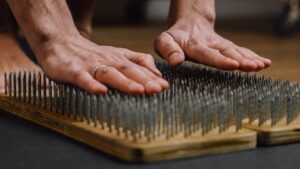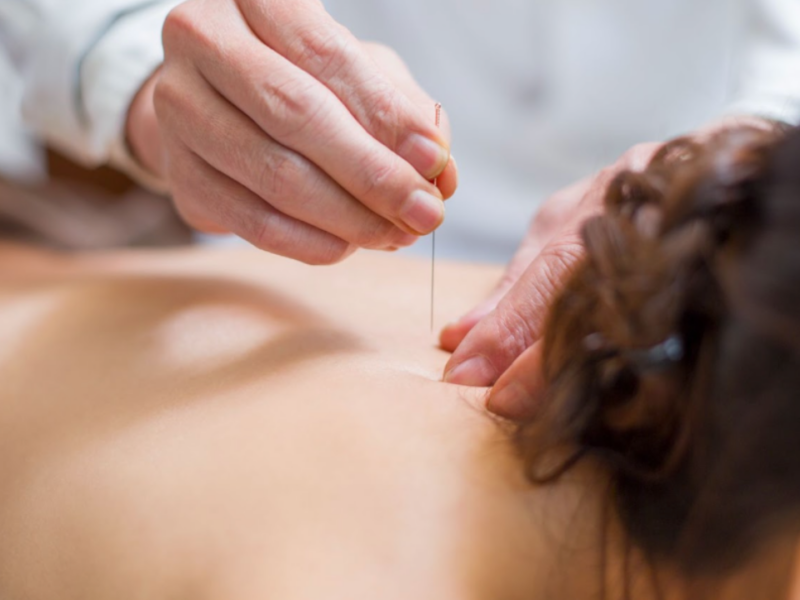Many people suffer from differing symptoms of anxiety and depression. They are two of the more common mood disorders. As a result, many doctors and practitioners prescribe various medications to help treat the symptoms stemming from the disease.
However, as with many medications, there are side effects. And sometimes, the drugs can accentuate the issues of anxiety and depression rather than alleviate them. As a result, people are seeking alternative ways to treat anxiety and depression with more Eastern medicine practices.
One of these practices includes acupuncture, a healing practice using tiny needles in specific nerve points throughout the body. The needles aim to help restore balance and energy through your nerves.
But, what are the benefits of acupuncture for treating anxiety and depression? First, let’s examine more regarding mood disorders and see how acupuncture helps treat them.
What is Acupuncture, Exactly?
Before exploring anxiety and depression, you should understand acupuncture first. Acupuncture is a traditional Chinese medicine used for thousands of years to treat medical conditions. The needles used are about the width of a single hair on your head.
Needles don’t sound pleasant; in fact, many people experience a fear of feeling poked by needles. But, the needles used for acupuncture are so thin you very rarely feel them going in at all. Each needle sticks into the body to stimulate a sensory nerve in a session, which then communicates with your nervous system.
The nerves the needles stimulate are called “meridians,” important points within your body’s communication pathways. The pathways allow energy to travel throughout the body and bring balance to the nervous and immune systems.
Most all acupuncture sessions last thirty minutes. Once needles are placed strategically, the practitioner will move them slightly or stimulate them with electrical currents to promote neuro activity in your body.
Acupuncture for Depression
Depression symptoms and signs can range anywhere from feeling frequent emptiness or sadness to loss of interest in things that you used to enjoy. Fatigue, insomnia, and lack of energy are other common signs of depression. Unfortunately, lab tests can’t measure depression symptoms, making it challenging to diagnose and medicate accurately.
The experts in Acupuncture and Chinese Medicine by WTHN in NYC state that acupuncture can help to regulate glutamate receptors. These allow the body to respond more effectively to neurotransmitters (brain chemicals that carry signals) and restore energy to the right parts of the body. Antidepressant medications aim to regulate neurotransmitters, but acupuncture has the advantage of doing so without the side effects.
A study found acupuncture significantly different when treating anxiety and depression in women. In addition, it discovered a big advantage to treating women’s major depressive disorder during pregnancy.
Acupuncture for Anxiety
Anxiety is highly triggered by stress and causes many varying symptoms. Panic, nervousness, and restlessness are some common signs of anxiety. In addition, there are some physical symptoms, including sweating, trembling, and hyperventilation (rapid breathing).
Many traditional medicines for treating anxiety often leave patients more sedated and numb. Acupuncture cuts through medications and stimulates the body to release endorphins, natural feel-good hormones. These hormones help to reduce stress levels and reduce other hormones that cause stress, such as cortisol.
Growing popularity with acupuncture is in its way to help treat pain, but it can be effective in overall wellness. It redirects energy so your nervous system can heal, releasing chemicals into the muscles, spine, and brain.
Extending the Benefits of Acupuncture
Acupuncture treatments can be further accentuated by working on daily habits and lifestyle changes that will improve your overall health and well-being. In addition, acupuncture is part of alternative medicine, which works to treat the person as a whole rather than providing medication for symptoms.
Here are some of the things you can do at home to extend acupuncture benefits:
- Exercise: movement is a form of therapy, and techniques that involve a lot of deep breathing and meditation to help focus on relieving tension and pain within the body (yoga or tai chi) can help maintain balance.
- Diet: your nutrition plays a crucial role in your mental health, and many people with mood disorders also often experience problems with their digestive tract, such as bloating or constipation. After an acupuncture session, you shouldn’t fill up on salts and sweets, but rather, stay hydrated and eat more vegetables.
- The antioxidants and nutrient-rich plants will help you feel more relaxed and aid in keeping you healthy. On the other hand, foods high in fat, sugar, and salt can accentuate feelings of depression and anxiety.
- Massage: Massage therapy is another way to help increase feelings of relaxation and calm. Therapists will work on releasing toxins that are built up within your muscles and provide you with a sense of relief.
Benefits of Trying Acupuncture

- It is a natural form of medication – acupuncture has virtually zero side effects since it is an entirely organic and natural treatment. Therefore, you don’t have to be concerned about experiencing any headaches, nausea, dizziness, and more that come with frequent medications.
- Releasing endorphins – the feel-good “high” you get after a workout is caused by endorphins, and you will experience that same feeling with acupuncture.
- Reducing inflammation and providing relaxation – acupuncture creates an anti-inflammatory response within your body and, for many people, is very therapeutic. In addition, the relaxing feeling and release of inflammation can cause patients to fall asleep and sleep better at home.
Learn More About Acupuncture from a Doctor
If you are looking into trying acupuncture, you should discuss it with your doctor first. Your doctor should be able to refer you to an experienced and certified acupuncturist who will know how to treat the symptoms of your anxiety and depression symptoms.
The treatment is most effective for treating mood disorders over several weeks. So, don’t expect to notice a significant change with just one or two treatments. Instead, talk with your practitioner about how many sessions can provide optimum healing for your health.
Want to unlock greater wellness?
Listen to our friends over at Wellness Force Podcast to unlock your genetic potential with Dr. Ben Lynch:








 CBD Versus THC: 6 Things To Know
CBD Versus THC: 6 Things To Know